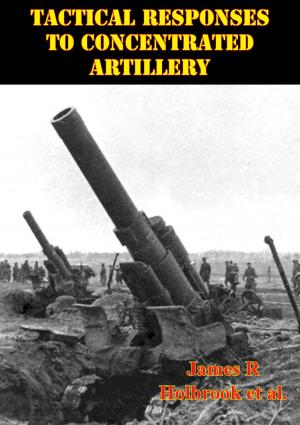The Fight For The High Ground: The U.S. Army And Interrogation During Operation Iraqi Freedom I, May 2003-April 2004
Nonfiction, History, Middle East, Persian Gulf War, Military| Author: | Major Douglas A. Pryer | ISBN: | 9781786253484 |
| Publisher: | Tannenberg Publishing | Publication: | November 6, 2015 |
| Imprint: | Tannenberg Publishing | Language: | English |
| Author: | Major Douglas A. Pryer |
| ISBN: | 9781786253484 |
| Publisher: | Tannenberg Publishing |
| Publication: | November 6, 2015 |
| Imprint: | Tannenberg Publishing |
| Language: | English |
During Operation IRAQI FREEDOM I (OIF I), U.S. soldiers waged a desperate war against a growing insurgency. Mounting U.S. casualties became the catalyst for a hidden “war within the war.” Arrayed on one side of this secret conflict were leaders who believed that the “ends justify the means.” Opposing this camp were those who believed that U.S. soldiers do not torture because of the higher ideals to which all Americans should subscribe. This clandestine conflict was waged at every level of command, from the fields of Iraq to Washington, D.C. In this history, the adverse influence of the ends-justify-the-means camp in Iraq is charted. Conversely, interrogation operations within the largest division task force and brigade combat team of OIF I are explored to explain why most interrogators treated detainees humanely. Those deficiencies of Army doctrine, force structure, and training that enabled harsh interrogation policies to sometimes trump traditional virtues are explained. Lastly, the Army’s recent dramatic improvements with regard to interrogations are summarized and still-existing deficiencies are noted. This history concludes that the damage done by abusive interrogations will be felt for years to come—and that much work still needs to be done to ensure such damage never recurs.
During Operation IRAQI FREEDOM I (OIF I), U.S. soldiers waged a desperate war against a growing insurgency. Mounting U.S. casualties became the catalyst for a hidden “war within the war.” Arrayed on one side of this secret conflict were leaders who believed that the “ends justify the means.” Opposing this camp were those who believed that U.S. soldiers do not torture because of the higher ideals to which all Americans should subscribe. This clandestine conflict was waged at every level of command, from the fields of Iraq to Washington, D.C. In this history, the adverse influence of the ends-justify-the-means camp in Iraq is charted. Conversely, interrogation operations within the largest division task force and brigade combat team of OIF I are explored to explain why most interrogators treated detainees humanely. Those deficiencies of Army doctrine, force structure, and training that enabled harsh interrogation policies to sometimes trump traditional virtues are explained. Lastly, the Army’s recent dramatic improvements with regard to interrogations are summarized and still-existing deficiencies are noted. This history concludes that the damage done by abusive interrogations will be felt for years to come—and that much work still needs to be done to ensure such damage never recurs.



![Cover of the book Task Force 2-4 Cav - First In, Last Out - The History Of The 2d Squadron, 4th Cavalry [Illustrated Edition] by Major Douglas A. Pryer](https://www.kuoky.com/images/2015/november/300x300/9781782899648-lwhf_300x.jpg)








![Cover of the book Letters On Strategy Vol. II [Illustrated Edition] by Major Douglas A. Pryer](https://www.kuoky.com/images/2015/november/300x300/9781786253699-S3oe_300x.jpg)


